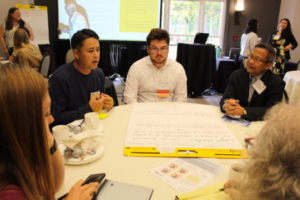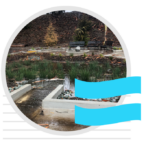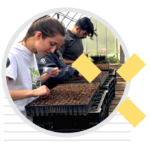June 2, 2023
Topic
With new energy and climate investments, policies, initiatives, and engagement opportunities popping up every day, there is high levels of both excitement and overwhelm from all levels of government. State and federal agencies are under tight timelines, strict statutes, and heavy political pressure to roll out programs that can achieve equitable results. Local governments and their partners are spending large portions of their limited capacity just to try to keep up with new opportunities, let alone apply for them, often unsuccessfully given the competitive nature of many programs. While State and federal agencies are regularly asking for input to ensure plans and programs address real needs on the ground, locals find themselves with very little time to individually help the State design initiatives that work. If we actually calculated the sheer number of climate professionals’ hours being spent trying to access external dollars and support, or getting stuck behind statewide administrative or policy obstacles, rather than taking action, we would likely find it staggering and it might help illuminate why more isn’t happening faster.
In the last couple of years, the California Climate and Energy Collaborative (CCEC), in working closely with its network and State and federal agencies, has recognized the growing level of confusion, fatigue, and missed opportunities, especially in the under-resourced communities that have the greatest need for assistance. We believe that federal, State, and local governments are natural partners and have been working on ways to make it easier for these agencies to coordinate to more effectively unlock the vast potential within communities to accelerate energy and climate action. Below we summarize the steps we are taking to improve local coordination with State and federal agencies and how you can benefit and participate.

“I am convinced building this bridge, especially between State and local agencies, is the most impactful way to help our network actualize its energy and climate goals.” – Angie Hacker, CCEC Statewide Best Practices Coordinator
1. Expanding Local Knowledge of State and Federal Resources and Opportunities
The lowest hanging fruit to start with was to help ensure that local governments and their partners are aware of the resources available to them. That has included tracking policy and opportunities way ahead of time to give locals a longer time to pursue them. We distribute this information through our wEEkly update and a funding webpage, which we intend to modify to summarize more solicitation details to help you quickly determine whether an opportunity is worth pursuing.
We also conduct our monthly, recorded Local Energy Resources Network (LERN) web meetings, which often feature State or federal representatives (detailed in Section C). The LERNs have been an important way to get timely information on opportunities out to our network and encourage discussion and input as programs are designed. Recently we have added capacity building discussions on how to successfully pursue grants. Over 500 people are registered for LERN. To join us, please fill out this form.
This work has helped us build stronger relationships with State and federal agencies and become a valuable asset and a magnet and funnel for information, meaning that agencies now alert us when they need help reaching our network. For example, DOE asked us to help local governments that had yet to claim their EECBG formula grants, and we did!
2. Individual Guidance and Support
We understand awareness of opportunities isn’t enough and that communities need much more help easing the heavy burden of pursuing grants and other opportunities. We have adapted CCEC’s technical assistance service to invite local governments to request a one-time grant advising meeting to discuss near time funding needs and recommend aligned available assistance opportunities. Oftentimes, a local government will simply reach out when they have a question about a State or federal program and we help navigate them to an answer. Where further assistance is available, including through the granting agency, we are helping our network take advantage of it. In fact, our friends at the Institute for Local Government have successfully obtained contracts to be able to help communities develop applications through programs like BOOST for free!
3. Elevating Local Influence to Shape Future Investments and Programs
While getting grants is great, CCEC is thinking about the bigger picture. What we all really want to see is that the right investments and services get to the right programs, places and people without burying communities in bureaucratic hurdles or compromising accountability to taxpayer dollars. And that starts long before a solicitation is released.
We believe local governments and their partners are such important players in energy and climate action that their perspectives are essential to help inform future State and federal investments, policies, and programs that work on the ground. However, professionals in our network are maxed out and need to preserve as much time as they can for action. Our State and federal agency partners are beginning to see that the current approach to coordination is too fragmented, time consuming, one-sided, and transactional. Moreover, it’s too much work for all and what is gathered isn’t used to build a comprehensive accumulation of understanding of local needs or policy obstacles across agencies. So, here’s how we’re working to make collaborating with State and federal agencies more meaningful, efficient, and effective.
Shaping Individual Programs or Policies
- Via Formal Input: While our sister program LGSEC handles CPUC regulatory input, CCEC regularly alerts its network of relevant formal comment periods or requests for information from other agencies. CCEC sometimes aggregates, synthesizes, and submits statewide formal comment on administrative guidelines or other requests for information to State of federal agencies on behalf of its network, such as:
-
-
- CARB Draft Scoping Plan Comments – Outlined why the State should support the many ways local governments can act to help meet carbon neutrality targets
- DOE Energy Efficiency and Conservation Block Grant Competitive Program RFI Comments
- EPA Greenhouse Gas Reduction Fund RFI Comments – provided input and examples from CA to guide program design
- CEC Draft Integrated Energy Policy Report Comments
-
- Via Informal Input: CCEC is building relationships directly with State and federal agencies and is now trusted to coordinate opportunities for more informal discussions, such as:
-
- 2021
- 2022
- LERN meetings provided opportunities to share thoughts on programs with DOE, NREL, CEC, Solar on Multi-family Housing Program (SOMAH), OPR, OEHHA, SGC, and CAEATFA
- Supported Integrated Energy Policy Report (IEPR) Workshop development and facilitation with CEC
- Conducted two Listening Sessions with CARB on its “Local Actions Appendix”
- 2023
- LERN meetings provided opportunities to share thoughts on programs with SGC, EPA, and CEC
- Conducting three Listening Sessions with CARB on “Barriers to Local Climate Action”
- Facilitating regular meetings and written input on DOE allocation for Home Energy Rebate Programs and the new Equitable Building Decarbonization Program with CEC
- Supported stakeholder engagement for CEC’s Equitable Building Decarbonization Regional Workshops
- Hosted Pre-forum State/Local Coordination Meetings with SGC, CEC, CARB and others; 80 local government representatives registered to attend
- Supporting stakeholder engagement for SGC regional meetings
Shaping Systems and Processes More Broadly
More regular engagement with State and federal leaders, at the CCEC Forum and many other meetings, has led to more opportunities to showcase local capabilities and successes, understand constraints, and generally amplify our perspective that empowering communities is key to scalable and rapid climate action. It is clear that the bridges we are building are slowly elevating the visibility of and confidence in local governments. And now that we’ve immersed ourselves so deeply in understanding local needs and how funding and assistance is deployed, we’ve gained a useful landscape perspective on where there may be opportunities to improve or transform related systems or processes. We are asking hard questions like: can we find a more elegant approach to gathering input across agencies that reduces engagement fatigue for all? When a community is drowning, should we really be demanding they dance for dollars? Are competitive grants truly “fair,” or are there other successful practices to get dollars where they are needed?
In other words, we are thinking outside the box and believe State and federal agencies are too. In fact, the SGC passed a resolution that aims to leverage existing State efforts at the housing-climate nexus through improved interagency alignment and coordination with local and regional partners. CEC’s IEPR specifically calls for more regional engagement. CARB is looking for impactful ways to help overcome obstacles to local climate action. OPR is thinking about how to identify “investible communities.” The Treasury is now allowing tax credits to local governments. Big shifts are afoot with many opportunities to help bend them in the best direction!
Where local priorities require a policy change, there are ways CivicWell and our network can even help advance legislation. To assist, CCEC is beginning to track relevant energy and climate legislation to share with our network.
Join us!
Local and State representatives at the Pre-forum State/Local Coordination meeting in June indicated tremendous interest in continuing to discuss ways to help State and local leadership increase coordinated efforts to more rapidly activate the unique strengths of CA communities. We need your input on ways to improve engagement and assistance so the right resources get to the right people, places, and actions. This group will identify priority needs and work with the State to co-create operational solutions to advance place-based energy and climate action. If you are interested in joining our quarterly State/Local Energy and Climate Coordination (SLECC) meetings starting on September 28, 2023 (3-4:30pm), please register here.




